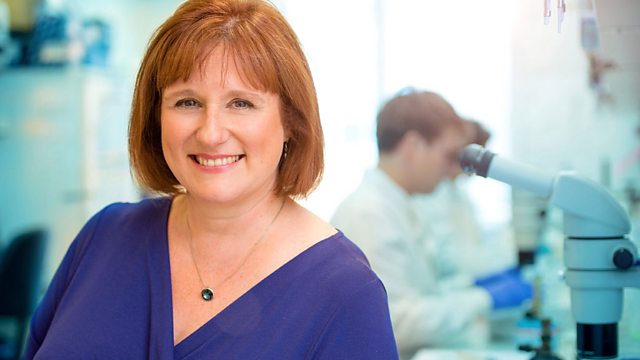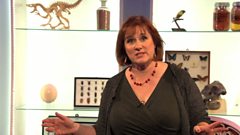
Could I Live Forever?
Dr Alison Woollard looks at why we die and how 'cell death' enables the development and survival of most multi-celled organisms from hedgehogs to humans.
There's one certainty in life: death. Every living thing - all creatures great and small - eventually die. But why? How do cells know when to stop living? What happens when they age? And are there ways of halting that process? Perhaps it might even be possible to live forever.
In this year's final Christmas Lecture, Dr Alison Woollard from the University of Oxford, tackles a question that has intrigued scientists and natural philosophers for centuries. The cycle of life and death affects all cells, but Alison reveals a shocking truth - that 'cell death' plays an important part in life. It enables the development and survival of most multi-celled organisms from hedgehogs to humans.
Why does a mayfly's life last just a few minutes, whereas an elephant can live for 80 years? Developmental biology and genetics give us new insights into how cells work and how we can use this knowledge to improve or even extend our lives. Some animals, like the naked mole rat, are well on the way.
In this lecture Alison artificially 'ages' the audience using a sophisticated computer program and meets a patient who has had their eyesight restored with cutting-edge stem cell therapy.
Joining Alison to discuss the serious ethical implications of such medical and scientific advances is Lord Winston. They confront the potential dangers of tinkering with evolution. Where do we draw the line in manipulating our own genes?
Having confronted the question of whether we could live forever, another very real issue emerges - even if it was possible to live forever, what kind of life would that be? Would we really want to live forever?
Last on
More episodes
Previous
Next
You are at the last episode
Clip
-
![]()
How does a cell know when to die?
Duration: 01:50
Credits
| Role | Contributor |
|---|---|
| Presenter | Alison Woollard |
| Series Producer | Johanna Woolford Gibbon |
| Executive Producer | David Dugan |

